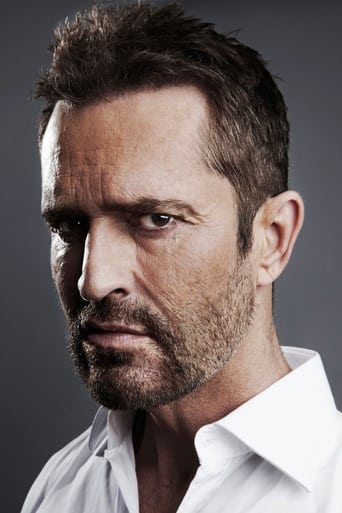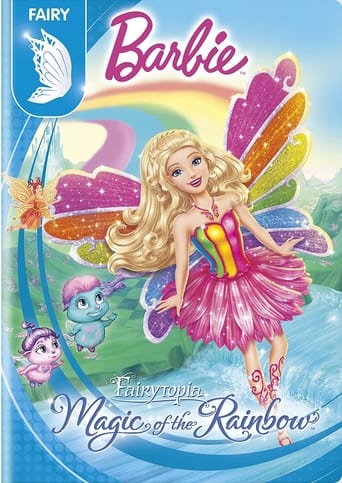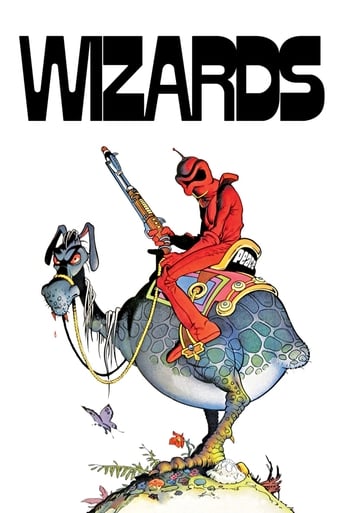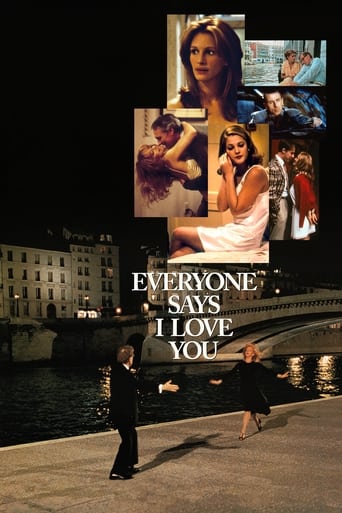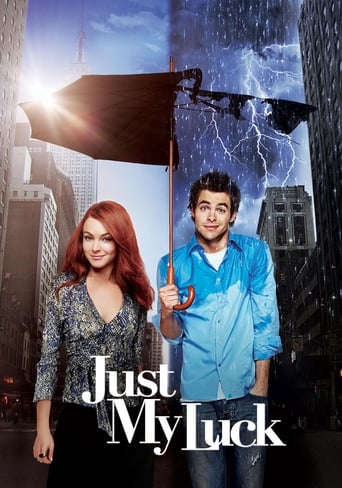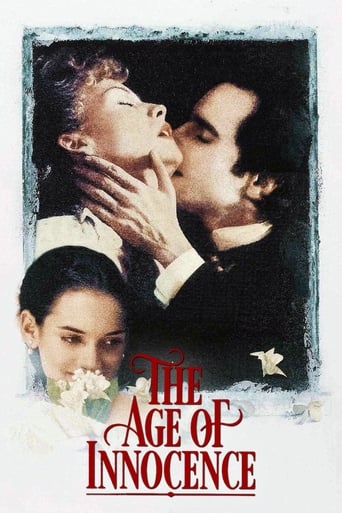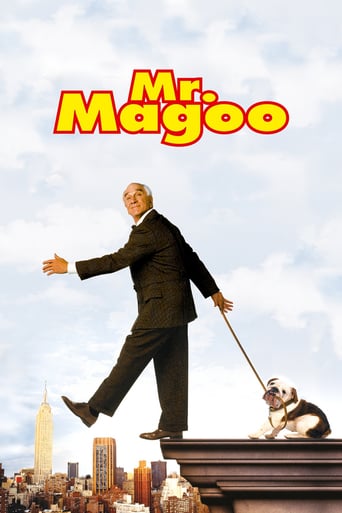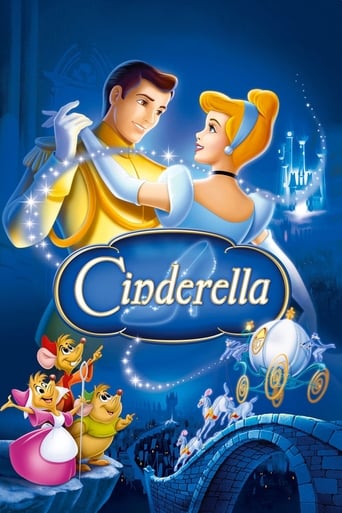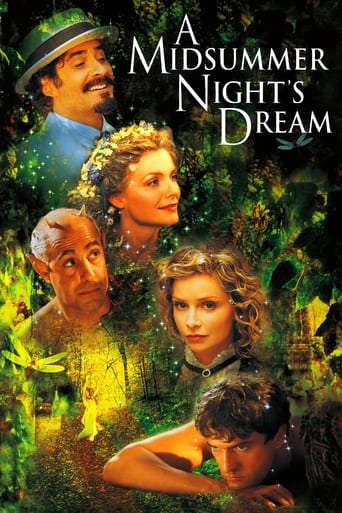
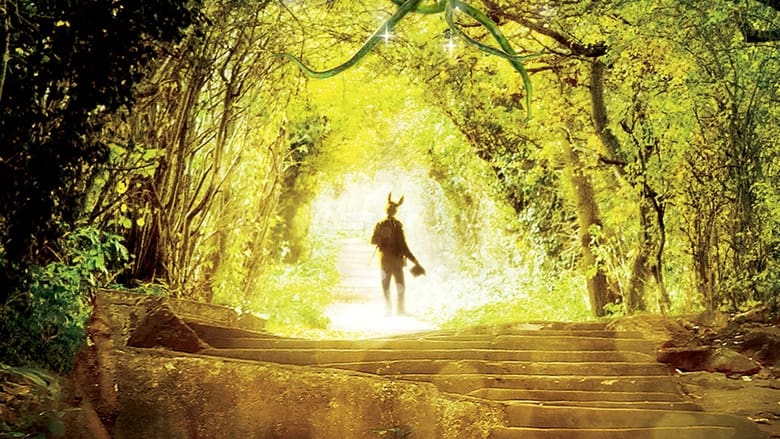
A Midsummer Night's Dream (1999)
The lovely Hermia is to wed Demetrius, but she truly cares for Lysander. Hermia's friend, Helena, is in love with Demetrius, while other romantic entanglements abound in the woods, with married fairy rulers Titania and Oberon toying with various lovers and each other.
Watch Trailer
Cast
Similar titles
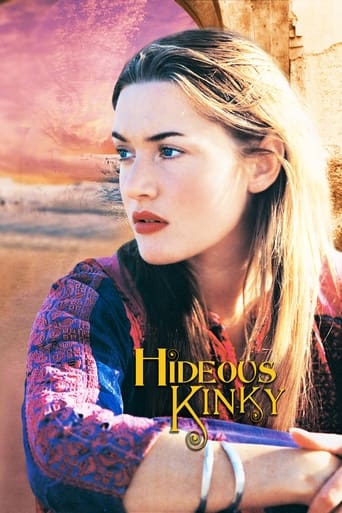

Reviews
Very best movie i ever watch
I wanted to but couldn't!
One of the worst ways to make a cult movie is to set out to make a cult movie.
This is one of the best movies I’ve seen in a very long time. You have to go and see this on the big screen.
I enjoyed this adaptation of Shakespeare's classic comedy, and thought the big name cast did well in bringing the iconic characters to life. The star power perhaps won't have the same effect on students watching it now as part of their studies, but it's still a good adaptation.I thought it particular Calista Flockhart shone, but Kevin Kline also has his moments.A solid adaptation.
I remember being pleasantly enchanted by this rather winsome film version of Shakespeare's romantic comedy/fantasy when it first appeared, and it certainly looked beautiful on the big screen with its gorgeous, warm cinematography, composition and production design. It created a pleasant, warm feeling in the audience, delivering a comforting experience, and drawing a few chuckles here and there; smiles rather than belly laughs. For here the comedy is fairly genteel, and often also quite melancholic –there is always another dimension to each moment of laughter, a story beyond, especially with the band of craftsmen who put their heart into performing, despite their lack of any real talent. Their preparations for and ultimate performance of "Pyramus and Thisbe" is where much of the comedy of the play lies, but in this film the traditional comic moments are toned down a great deal. I admire the restrained performances of both individuals and the amateur group as an ensemble, because it is so easy to go over the top with their part in the story. Here we smile affectionately rather than laugh mockingly, and our smiles are warm and sympathetic, as they sometimes are when someone in the family performs at a wedding or similar despite a lack of talent. Kevin Kline as Bottom naturally takes much of the limelight, and gives his character a whole deeper life than is normally seen, as does the very underrated Roger Rees as Peter Quince –he gives an immensely dignified and rather beautiful performance here, full of subtle details that I only really appreciated upon viewing the film again. I found many of the magical scenes with the fairies to be quite mesmerizing, and the careful use of special effects was just right in creating moments of fantasy and wonder without overwhelming the picture. Much of the beauty of the play lies in the lines spoken by Oberon and Titania and Puck, and Rupert Everett, Michelle Pfeiffer and Stanley Tucci give great respect to the language and poetry of Shakespeare, without falling to the traps of prettifying it or making it bombastic –it's poetry, yet living dramatic interaction too. By and large, I think most of the cast do quite well with the text, making it alive and personal, and I certainly am not one of those who despair at American voices uttering Shakespeare; quite the contrary. Here, there is a nice mix of American and British voices, and it is to the film's credit.If I were pushed to criticize the film it would be for its lack of "edge" or danger –passion, if you like. This applies both to the two pairs of young lovers, and the fairy characters and their escapades. Everything is a little too mellow and tame, so that we are lulled more than provoked. A little more spice or audacity would have perked things up considerably, and the story certainly gives room for and even suggests this.But the director has his own vision of the play and is at least consequent in his presentation of that, and it's perfectly acceptable. The interesting thing is that A Midsummer Night's Dream may be tackled in many different ways, and the "world" that is presented here in all its lush, green, dream-like beauty is no less valid than other more provocative versions of Shakespeare's magical comedy.
The story rolls in nicely. Trying to retain the nature as a play, the dialog retains the old English grammatical and vocabulary, though I don't think that it is the exact dialog from the play. What I like better is that, still in the spirit of retaining the feel of the original play, the main part of this movie is shot on a set that seem to be made for a stage, not shot at an outdoors location as what it would be inferred from the story. The costumes and props also hold this true, having them elaborate costume just as eye candies without having them interact realistically. For instance, the wings on the fairies looked just as glued parts on the costumes without having any complex effects on them. It's nice to see many great talents acting here. I like how this is one Christian Bale's previous works before the bigger titles. Other names as big as Pfeifer, Flockhart, West, and Marceau also did a good job, and for sure pumped the hype for curiosity over this movie.
There are basically two things that this movie proves, and that is that Shakespeare does make more sense when it is acted on stage (or on screen) and that the Royal Shakespeare Company production that I saw years ago is still the best, and funniest, performance of this play that I have seen (though including this movie I would have to make that count to be two). I hope that most people who are actually reading this already know what the plot of A Midsummer Night's Dream is all about as I don't really want to waste anytime going over it again, but I guess I will have to.As can be expected with most Shakespearian plays there is no one simple plot, and in fact this play is notorious for not actually having one single plot, but rather a collection of minor subplots that finishes up with a rather absurd performance of Pyrimus and Phisbie. Basically the king and queen of Athens (Theseus and Hippolyta) are getting married and stage a competition for the person that can make the best play. However, there are four younger people, Demetrius, Lysander, Helena, and Hermia, who are also major characters. Demetrius (I think) is engaged to Hermia, but Hermia and Lysander are in love, and Helena loves Demetrius. Then there is the faerie world where Titania and Oberon rule, and the Faerie king and queen are having a spat over possession of an Indian baby.Anyway, the four younger ones decided that they do not like the civilised world of Athens so they flee to the forest, and Oberon happens to spy Demetrius fleeing from Helena and finds that to be rather immature, and decides to work his magic, through his servant Puck, to make Demeritus fall in love with Helena, but Puck gets it mixed up and magics Lysander instead, and Lysander then falls in love with Helena, and thus we have a huge mix up where the four are running around everywhere and everybody is confused as to who loves who. Meanwhile, the four working class men sneak off into the woods to practice their play, and also end up under the spells of Oberon.One interesting thing that I picked up from this play, and I have mentioned it elsewhere, is the contrast between civilisation and nature. It is believed by the human characters that while under civilisation there is law, under nature there is freedom, however this turns out to be quite the opposite. Lysander and Helena flee civilisation to the forest to be free of the law of the civilisation, but end up under the law of the forest. As it turns out, by fleeing to the forest they are not escaping to freedom, but a new ruler and a new law. The theatrical version that I saw had the same actors playing Titania and Oberon as well as Hippolyta and Theseus (which adds to the weight that there is still law, and rulership, in the forest).Another interesting aspect is the nature of the dream. Once again I have mentioned this elsewhere, but the entire play in and of itself is a dream which we, the audience, are experience, and Puck outlines this at the end. However, the entire episode in the forest is also a dream for the characters, and we see that after they enter the forest they all fall asleep, and before they leave the forest, they are also asleep, so the entire episode in the forest, particularly the mix up, is bracketed by two episodes of sleep, and thus this whole escapade in a sense is a dream. Bottom says so much when he wakes up and discovers that he is no longer an ass.Further, we note that the dream world does have an impact upon the civilised world, as Demetrius falls asleep despising Helena and awakes loving Helena. What the movie managed to draw out more is the sexual nature of the play, which once again does not come out well in the written word, particularly with the language that is used. For instance, in another play I saw one of the actors, using demonic language, speaks of the man's horns and the woman's cloven hoofs, which, as it turns out, is a reference to their sexual organs.I did enjoy this film, but it was not as good as the play that I had seen. I was disappointed that they had shifted the setting to Italy, because the use of Greece in the play distanced the action of the play far back into the mythological past to add further to its dreamlike nature. Theseus and Hyppolita are both Greek myths, and exist the the time before the more historical period of Socrates, Leonidas, and Xerxes. Even the character of Lysander, named possibly after the Spartan Lawgiver, is also quite a mythological person. However, I did find the use of antique gadgets such as the bike and the gramophone to add something to the film, and added a newer dimension of how modern technology is beginning to intrude into the dream world, and in doing so, destroying the magical nature of the dream world. In the end, both Oberon and Titania leave the forest, possibly never to return, as reason begins to override faith.
